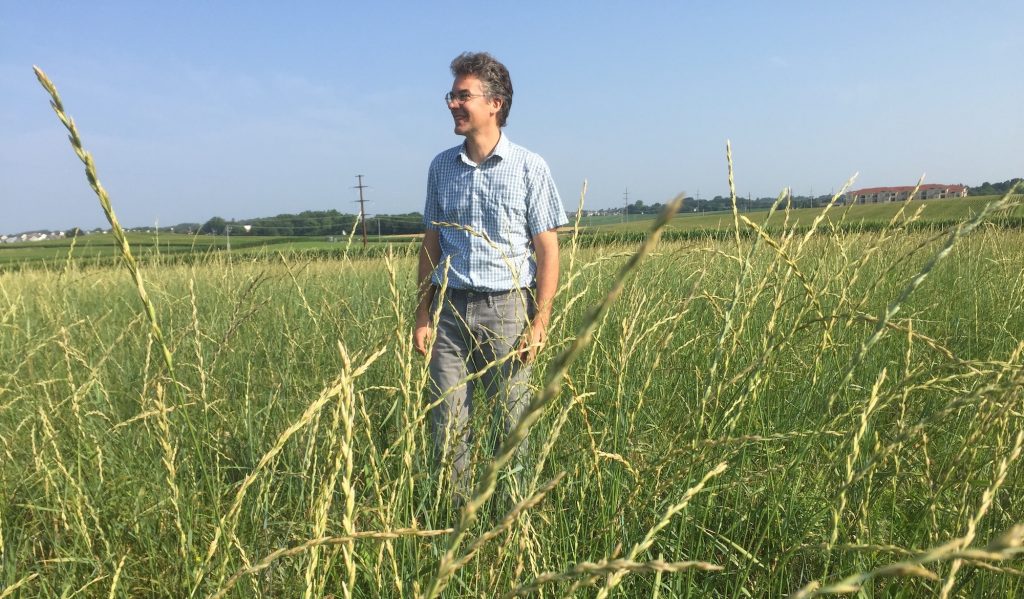
With the support of a $10 million grant from the USDA National Institute of Food and Agriculture, a multi-state team of researchers is embarking on an effort to study diverse perennial forage systems and to promote their adoption across the United States.
Unlike annual crops that are planted and harvested every year, perennial forage crops could provide animal feed year after year. Perennial crops can help build healthy soils and trap more carbon underground that annual crops do.
The project, led by the University of Wisconsin–Madison, involves a diverse, transdisciplinary team of more than 50 researchers and stakeholders from 23 universities, two USDA-Agricultural Research Service centers, as well as 12 farmer organizations, industry groups, non-governmental organizations and government agencies.
“The prevailing agricultural systems in the U.S. are dominated by annual crop monocultures that lack resilience to extreme weather, and are challenged by soil erosion and other environmental issues,” says project director Valentin Picasso, associate professor in the UW–Madison Department of Agronomy. “Through this new project, we hope to promote the transformation of the landscape to be more resilient, by integrating more perennial crops and forages with livestock.”
Part of the effort involves convening a nationwide network of 50 farm pairs — one farm already using diverse perennial forage systems, paired with one interested in transitioning towards more diverse perennial systems — that represent all of the major agro-ecoregions of the United States. Researchers will partner with these farm pairs to measure and compare numerous production, environmental, social and economic factors.
The team will share their results through outreach and education materials throughout the five-year term of the award.
“We will also analyze the economic conditions, social structures and public policies that hinder the adoption of diverse perennial forage systems, and develop strategies to overcome these constraints,” says co-project director Andrew Stevens, assistant professor in the UW–Madison Department of Agricultural and Applied Economics.
The long-term goal of the project is to have diverse perennial forage systems adopted across more than nine million hectares of land in the U.S., helping to expand the impact of this system’s many benefits: reduced agricultural losses, soil erosion and nutrient runoff, as well as increased soil carbon sequestration, pollinator services and market demand for such products.
The project’s management team includes faculty from Michigan State University, North Dakota State University, Oregon State University, Saint Cloud State University, University of Maryland and University of Wisconsin–Madison.
This project was announced on Oct. 6 in a USDA news release about new awards made through the department’s AFRI Sustainable Agriculture Systems program.
“This is the time for agriculture, forestry, and rural communities to act,” said Tom Vilsack, U.S. Secretary of Agriculture, in the USDA release. “Together we can lead the way with investments in science and research and climate-smart solutions that feed and nourish families, improve the profitability and resilience of producers, improve forest health, while creating new income opportunities, and building wealth that stays in rural communities.”
The new UW–Madison-led project is supported by AFRI Sustainable Agricultural Systems Coordinated Agricultural Program (SAS-CAP) grant no. 2021-68012-35917 from USDA NIFA.
